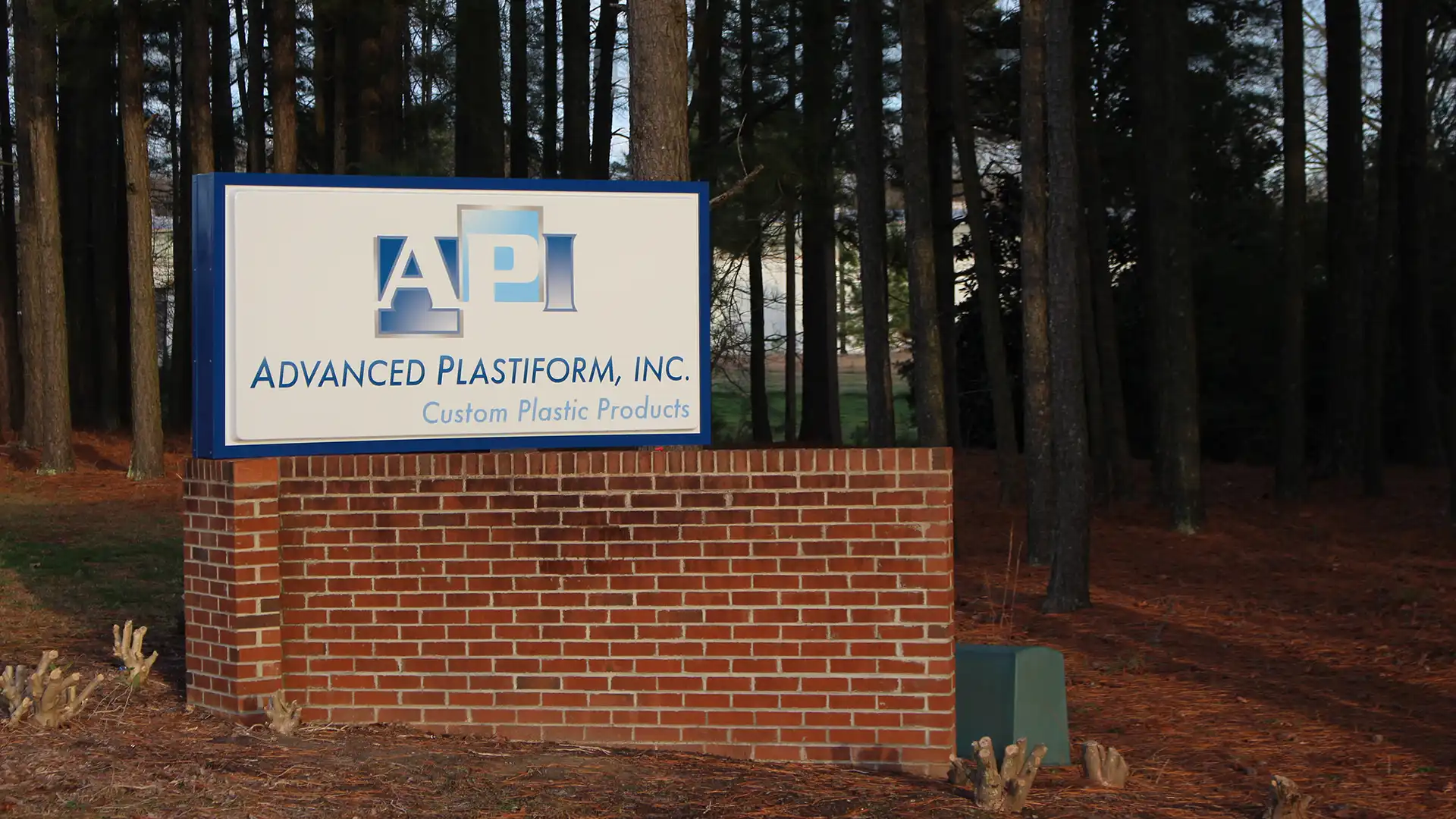Helping You Determine What is Best for Your Custom Plastic Component Thermoforming and injection molding…
Injection molding is a process we use at our plastics manufacturing facility to mold and shape small or intricately designed parts and components. We melt down a thermoplastic to its liquid state, and using a highly pressurized injector, the melted plastic is forced into a custom mold. The high force used ensures all the liquid fills the mold completely, even the smallest spaces and creates highly accurate finished products at a high-scale production rate.
Because we have to take such care to ensure accuracy to the design while making sure that the plastics we create are able to withstand and hold up to their intended use, we only use the highest quality thermoplastic materials. Thermoplastics are polymers that can be heated and reshaped without it affecting their chemical bond or structure, and certain thermoplastics are better used for injection molding than others. To help you understand our manufacturing design and development process, we’re sharing our most commonly used thermoplastics used in injection molding.
Best Plastics for Injection Molding
Because injection molding requires more intensive manufacturing processes than thermoforming, we have to look closely at the qualities of each material we use. The plastics commonly used for thermoforming are generally not the same ones we commonly use for injection molding, though there are some that are ideal for both options.
Acrylonitrile Butadiene Styrene
Acrylonitrile Butadiene Styrene, or ABS, is not only frequently used in thermoforming to make car dashboards, luggage, and refrigerator liners, it’s also used in injection molding. The blending of acrylonitrile, butadiene, and styrene mean this plastic is highly resistant to damage from impacts, UV rays, and chemical exposure, so it’s a tough, strong material, and its low cost reduces production cost.
Regarding injection molding, this plastic’s properties include a low melting point and high flexibility, so it melts evenly and hardens into a strong, rigid product.
Injection molding ABS can produce:
- Vehicle knobs and dials
- Keyboard keys
- Toys and toy components, like LEGO®
- Pipe fittings
- 3d printing prototypes
Polypropylene (PP)
Polypropylene, or PP, is a synthetic, low-density thermoplastic that is commonly used in plastics manufacturing. It is an inexpensive material that is highly resistant to moisture, impact damage, and chemical exposure. Also, it’s a food-grade plastic which opens up a wide variety of uses regarding packaging.
While polypropylene is used in thermoforming, its properties also make it ideal for injection molding. It is incredibly flexible, has a low density and weight, and it has a low melt viscosity which allows it to fill the mold easily.
Products made from injection molded polypropylene include:
- Caps and lids for bottles, especially those with a molded or “living” hinge, like ketchup lids
- Plastic utensils and cooking tools
- Laboratory equipment
- Car battery components
Polycarbonate
Polycarbonate, or PC, is highly impact resistant, even more so than ABS and PVC, and is often used as an alternative for eyeglass lenses or for bullet proof glass. Additionally, PC is a good electrical insulator, so it can be used in both electrical and telecommunications products. Generally polycarbonate is used when something stronger and more durable than acrylic is needed that can also withstand high temperatures.
Because polycarbonate is very pliable and flexible and, with a “flow” point of around 155 degrees Celsius, it can fill an injection mold easily and harden into a strong, durable material. Products made from injection molding polycarbonate include:
- Data storage
- Electrical components
- Cell phone cases
- Transparent LEGO®
Contact Us for Injection Molding Services
We take pride in being a leading plastics manufacturing company who serves companies and industries throughout the Southeast and Mid-Atlantic. We offer low per-unit pricing and faster lead times while also ensuring a highly accurate finished product, even in large quantities.
By combining the best materials and innovative equipment and technology with our knowledge and experience, we’re a leading plastics manufacturer, serving businesses across North Carolina, South Carolina, Pennsylvania, Maryland, Tennessee, Georgia, and Virginia.
Contact Advanced Plastiform, Inc.
Let Us Know How We Can Help!

